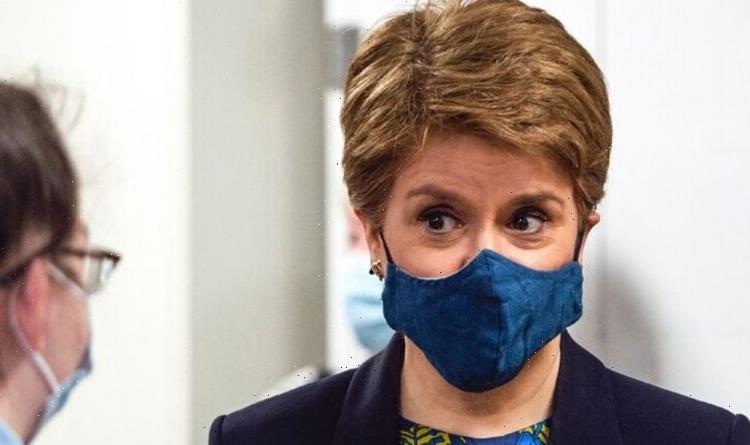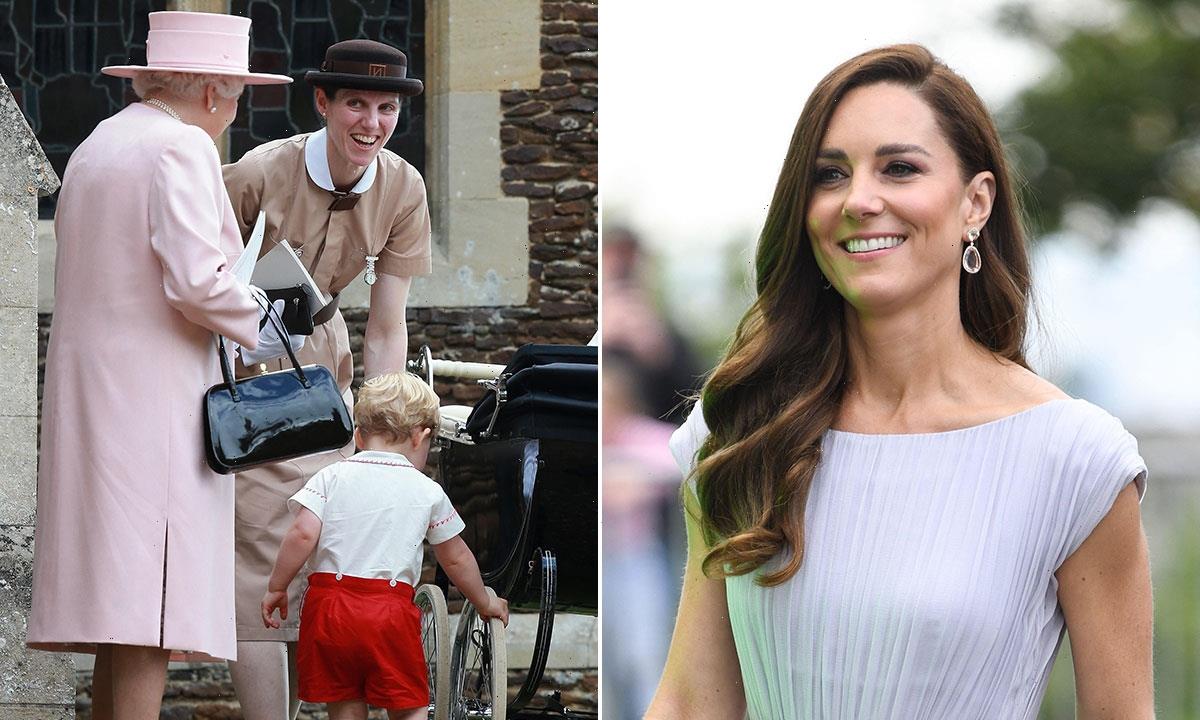Former Attorney General William Barr said he believes former President Donald Trump is morally responsible for the Jan. 6, 2021, riot at the U.S. Capitol but isn't legally culpable.
Asked by NBC News' Lester Holt whether he considered Trump "responsible" for the violence at the Capitol, Barr said: "I do think he was responsible in the broad sense of that word, in that it appears that part of the plan was to send this group up to the Hill. I think the whole idea was to intimidate Congress. And I think that that was wrong."
But, he added, he hasn't seen evidence that Trump committed an actual crime. "I haven't seen anything to say he was legally responsible for it in terms of incitement," Barr said.
Holt interviewed Barr for a prime-time special airing Sunday at 9 p.m. ET on NBC. It's Barr's first television interview since he stepped down as attorney general in December 2020 after 22 tumultuous months as the country's top law enforcement official.
Barr, a longtime proponent of broad presidential power who was often accused of acting as Trump's lackey, was also asked whether he would have investigated the former president over classified documents that the National Archives said were taken to his Mar-a-Lago resort in Florida after he left office.
"To tell you the truth, I probably wouldn't," Barr said. He suggested that Trump's having made off with the documents was probably not illegal.
"The whole classification system is done under executive order. It's the president. The president decides everything," Barr said, although there's no indication Trump formally declassified the documents that left the White House with him.
Barr sat for the interview in advance of the publication of his book recounting his time in the White House, “One Damn Thing After Another: Memoirs of an Attorney General.” In a letter to NBC News responding to Barr’s interview and his account of his time working for Trump, Trump said the book was "fake" and called Barr a "coward" and a "big disappointment."
During his time as Trump's attorney general, Democrats and some former prosecutors criticized Barr for appearing to act as Trump's personal lawyer instead of as an independent law enforcement official. Barr insisted to Holt he wasn't Trump's "toady" and defended decisions he made as attorney general that were in line with what Trump was demanding publicly, often on Twitter.
Barr, who was also attorney general for President George H.W. Bush, acknowledged that he spent far more time in the White House during the Trump presidency.
"I think I probably was in the Oval Office six times maybe when I was A.G. for Bush," Barr said. Asked how many times he was there under Trump, he said: "Scores. Scores."
He said the meetings were "sort of like a floating card game."
"There were always players coming and going," he said. "And there was never really a beginning or end."
In a wide-ranging interview with Holt, Barr defended some of his more controversial actions as attorney general , including a four-page letter he issued ahead of the release of special counsel Robert Mueller's report on the Trump campaign and Russian interference in the 2016 election. Two federal judges later said the letter was misleading. Mueller himself also expressed frustration that Barr’s letter “did not fully capture the context, nature and substance of this Office’s work and conclusions.”
Barr’s statement said Mueller’s team did not find that anyone in the Trump campaign conspired with Russian efforts to meddle in the 2016 election. A judge said Barr left out the fact that the report identified numerous contacts between members of the Trump campaign and people connected with the Russian government.
Barr said "I totally reject" criticism from the judges, Mueller and others about his letter. "This was not a summary of the report. It was a description of his bottom-line conclusions. I stuck with the bottom line. You say guilty or not guilty. That's what I did," he said.
As for his decision to soften a prison sentence for longtime Trump adviser Roger Stone that Trump had repeatedly blasted as unfair, Barr said: "I knew it would be made to look bad. At the end of the day, all you can do is what you think is right."
Trump pardoned Stone in his last few weeks in office.
Barr also defended his decision to remove Geoffrey Berman, the U.S. attorney for the Southern District of New York, whose office prosecuted former Trump lawyer Michael Cohen and was investigating Trump attorney Rudy Giuliani and two of his associates. Barr maintained that getting rid of Berman had nothing to do with trying to protect Trump.
"I didn't think there was any threat to the president," Barr said, and the decision to can Berman "was my call."
"I hadn't really thought much of him," he said. "I wanted to make the change."
Barr said it was also a coincidence that federal police officers violently cleared protesters from Lafayette Square in Washington, D.C., in June 2020 just before Trump held a photo opportunity at a nearby church with Barr and others.
An inspector general's report last year concluded that police initially intervened so a contractor could install fencing — not because of Trump’s event. But the report said Barr urged officials to speed up the clearing process once Trump had decided to walk through the area that evening.
“Are these people still going to be here when POTUS comes out?” Barr was quoted as telling a U.S. Park Police commander in the report.
Barr insisted to Holt that the park "was being cleared for law enforcement purposes" and added that "an attorney general doesn't come in and take operational control of things."
He said he found out he was expected to go to the park with Trump only shortly before he departed. "They told us that he was going to walk 15 feet in front and we were going to trail behind. He had a very scowly look on his face as he sort of walked along, and I said, 'This is not going to go over well.' That's what I was thinking."
Barr said that despite the perception that he was deferential to Trump, he would stand up to the president when the occasion called for it, including shooting down his demand that former FBI Director James Comey be prosecuted over allegations that he mishandled classified information.
Trump "was very, very upset that I didn't bring a case against Comey," Barr said, but "the evidence wasn't there, the evidence of intent."
He also said he resisted Trump's demand to rush out the results of an investigation into the origins of the Russia probe before the 2020 presidential election. The investigation, which is being handled by special counsel John Durham, continues.
Barr said he told Trump that "we can't run things according to a political calendar."
"I also felt that the idea that the election would turn on whether there's a prosecution of some lower-level person at that point, you know, on the Russia-gate thing, was a misperception," he said. "I think people were worried about much bigger issues."
As for his decision to authorize the Justice Department to break with previous policy by giving prosecutors the green light “to pursue substantial allegations of voting and vote tabulation irregularities prior to the certification of elections” amid Trump's claims of widespread fraud, Barr said he just wanted answers to some of the allegations that were already flying around thanks to Trump and his allies.
What he found didn't make Trump happy.
"I quickly came to the conclusion that the initial stuff that was pointed to, like the Dominion machines and all these other conspiracy theories, were nonsense," he said. And "this idea of some inner-city boiler room where people are cranking out false ballots is a fantasy."
Barr said that after he announced publicly on Dec. 1, 2020, that he'd found no sign of widespread fraud, Trump became enraged.
"That's the maddest I'd ever see him," Barr said.
He quoted Trump as telling him: "Well, you know, I hear about these Dominion machines in Michigan. Some people think that they should be seized."
"And I said, 'There's no way the department is going to seize those machines. There's simply not probable cause.'"
He said he told Trump, "The reason you are where you are is because you wheeled out a clown show in lawyers," a reference to Giuliani, who was a frequent critic of Barr's.
Holt noted that in his book, Barr said he didn’t think Trump would ever concede, because in “his cosmos, a loser was the lowest form of life.” He asked Barr whether he thinks Trump really believes he won the election.
"I think his attitude probably is it either was stolen or if it wasn't stolen I want people to believe it was stolen," Barr said. "It's useful. I'm not sure he's, you know, really fixated on finding out what the truth is there."
Barr, whose book goes on sale Tuesday, is scheduled to sit for a live interview on NBC's "TODAY" show Monday morning and will appear on NBC's "Meet the Press" next Sunday.
In his response, Trump said: “Bill Barr cares more about being accepted by the corrupt Washington media and elite than serving the American people. He was slow, lethargic, and I realized early on that he never had what it takes to make a great attorney general.”
That's different from what Trump has said publicly. In February 2020 — after Barr had been on the job for over a year and after he directed a lighter sentence for Stone — Trump said of Barr: “I think he’s doing an excellent job. He’s a strong guy.”
Source: Read Full Article

